Power System Lab
This lab course includes experiments to study various aspects of power systems: measurement of the characteristics data of a transmission line and an assessment of its voltage drop and losses; synchronization and steady state operation of a generator connected to an infinite bus system; load characteristics of a synchronous motor and effect of field excitation on reactive power load; effect of voltage levels on power transmission and effects of various load types on power plants; load flow data preparation and system study; system analysis of symmetrical and unsymmetrical faults; Transient stability data preparation and system study.




Machines Lab (AC & DC)
This is our core set of laboratories, in terms of curriculum. Its overall needs are versatility and generality, in view of the many basic course needs it serves.This lab is general enough to hold a number of experiments suitable for giving students enough exposure to enable them to easily adopt experiments in more advanced laboratories in the department. developing state-of-the-art machines and monitoring and diagnostics technologies to enable faster, greener ways to power, build and move the world.
This is the main lab where experiments like load test on various machines, speed control tests, open circuit tests, short circuit tests, etc are carried out..and also wide variety of practical experiments are performed here with combination of different rotating machines. The laboratory is also used for research activities in machines and to carry out project works on energy conversion.
Rectifier, motor-generator set, motor- alternator set, induction motor, synchronous motor, variety of transformers, lamp loads, inductive loads, resistive loads, compound machines, tachometers, voltmeters ammeters, wattmeters, megger, frequency meter, synchroscope, rheostats, variety of starters, DC motors,etc.
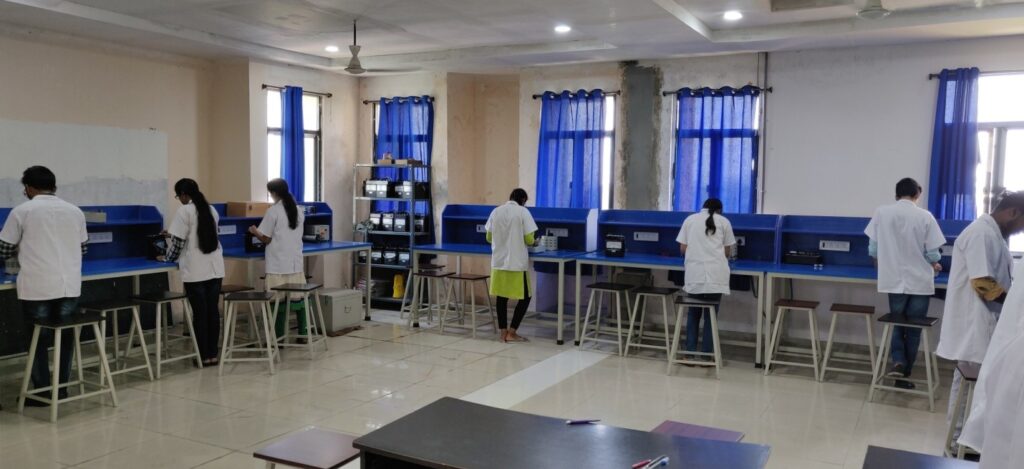
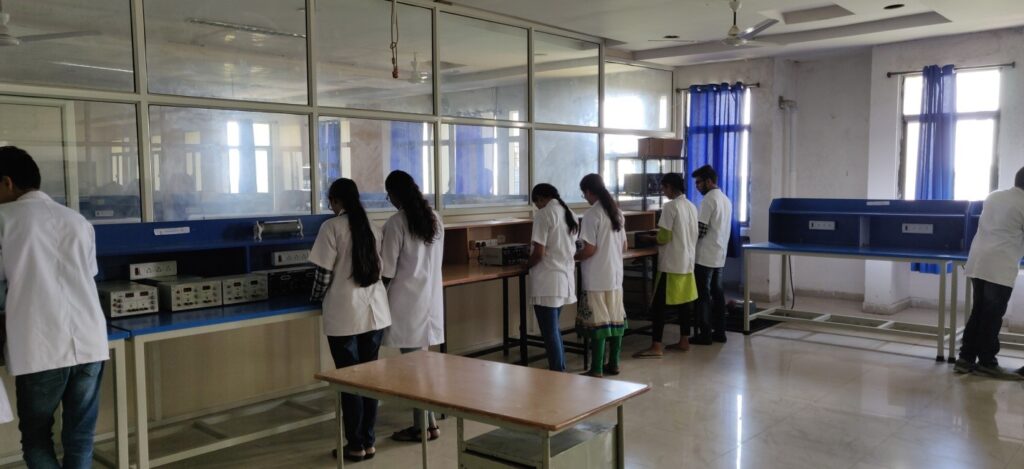
EMI Lab
The Instrumentation and Measurement laboratory in Electrical and Electronics Engineering (EEE) Department has the objective to familiarize the student with the operation of basic laboratory instrumentation such as Energy meter, multimeter, frequency counter, voltmeter, Ammeter .Another goal is to re-enforce theoretical knowledge with practice and vice-versa, and also to learn correct laboratory procedures and techniques. This is accomplished by building, testing, and taking measurements on simple circuits. In the execution of the experiment, highest benefit is gained by students of Electrical and Electronics Engineering (EEE) if they can distinguish between performing the experiment by following step-by-step instructions, and actually understanding the reasons and the methodology behind the various parts. To understand the experiments student must understand the theory of the circuits under test, and the instruments used to test them.
In the lab a student performs the experiments, where he/she obtains “hands on” experience on how to correctly connect circuits, and use the various laboratory equipment.
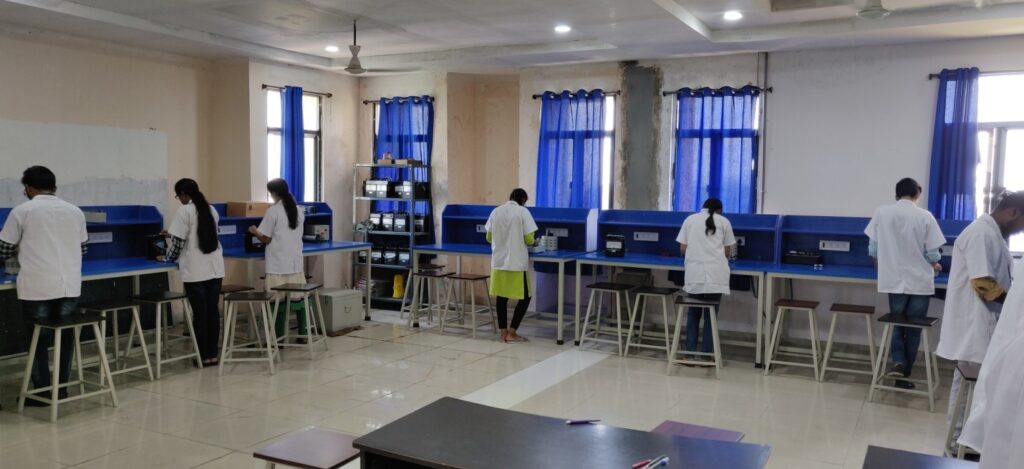
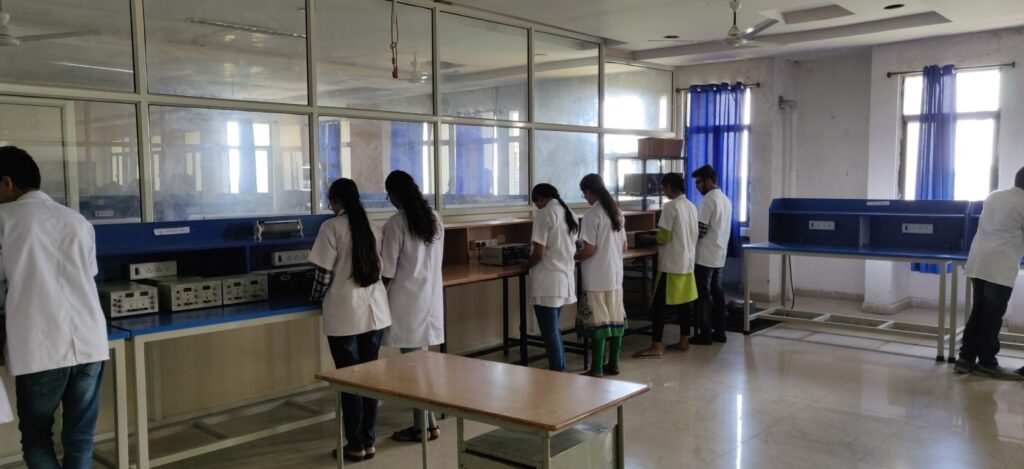
Control Systems Lab
Control Systems Laboratory presents facilities of computing and simulation through MATLAB and demonstration on FEEDBACK designed equipment with PCI cards creating an impressive digital control system development environment. MATLAB is a ‘higher-level’ technical computing language that provides a platform for algorithm development, data analysis, data visualization, etc. Together with SIMULINK and additional toolboxes it facilitates control system design and analysis, which can later be implemented in real-time applications using Real-time Workshop. The Feedback range of Control Systems demonstration equipment has been employed to provide a modern, efficient approach to training the undergraduate students in this field. Our philosophy is to equip students with the fundamental ideas and principles that underpin modern engineering practice by using versatile trainers that quickly and clearly demonstrate the required technology. Feedback control Instruments are compatible with such an environment
Power Electronics Lab
The power electronics lab enhances the EEE students by providing them the better understanding of the concepts and working of advanced power semiconductor devices and power electronics circuits.
This lab also provides the platform for the UG students to perform and check their minor project, multi-disciplinary design and major project.
This lab enables the students to make and test their project.
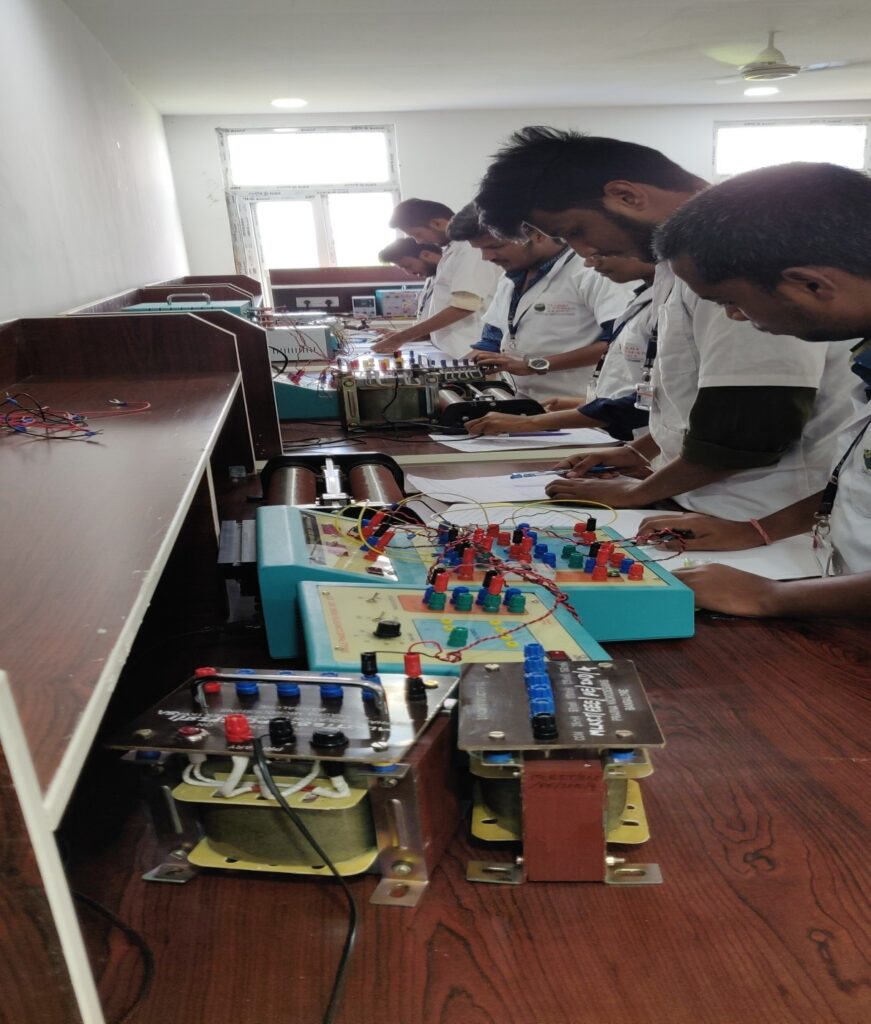
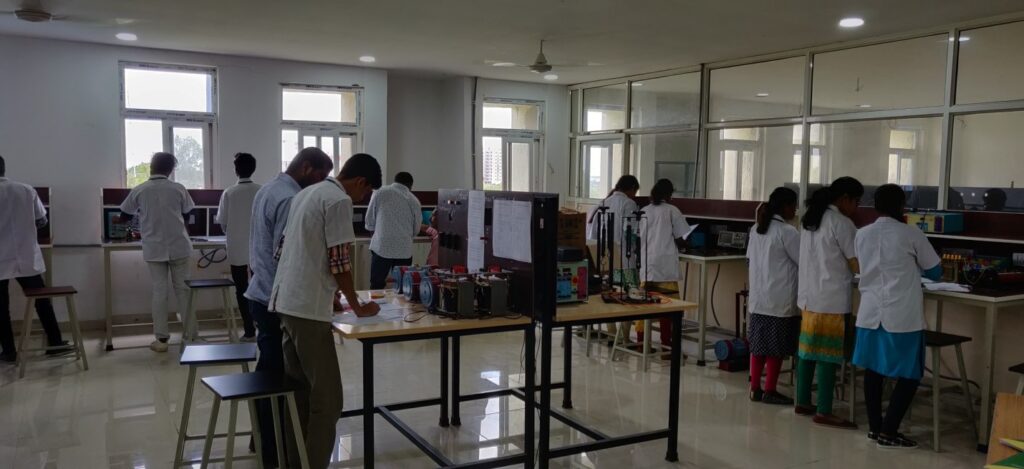
Power Semiconductor Drives Lab
The main objective of power converters and drives lab is to familiarize the students with latest converters based on power semiconductor devices. This provides the basic practical knowledge in the application of power electronics in electrical drives and machines like thyristorized speed control of DC and AC motors.
BEEE Lab
The BEEE lab is a very basic lab which gives practical overview of theoretical concepts of basic electrical and electronics engineering. The BEEE lab has latest equipments and panels like Single and Three phase Transformers, DC motor- Generator, Single phase Induction Motor and basic electronic components.

ECA Lab
The objective of the Electrical Circuits lab is to expose the students to the of electrical circuits and give them experimental skill. The purpose of lab experiment is to continue to build circuit construction skills using different circuit element.

